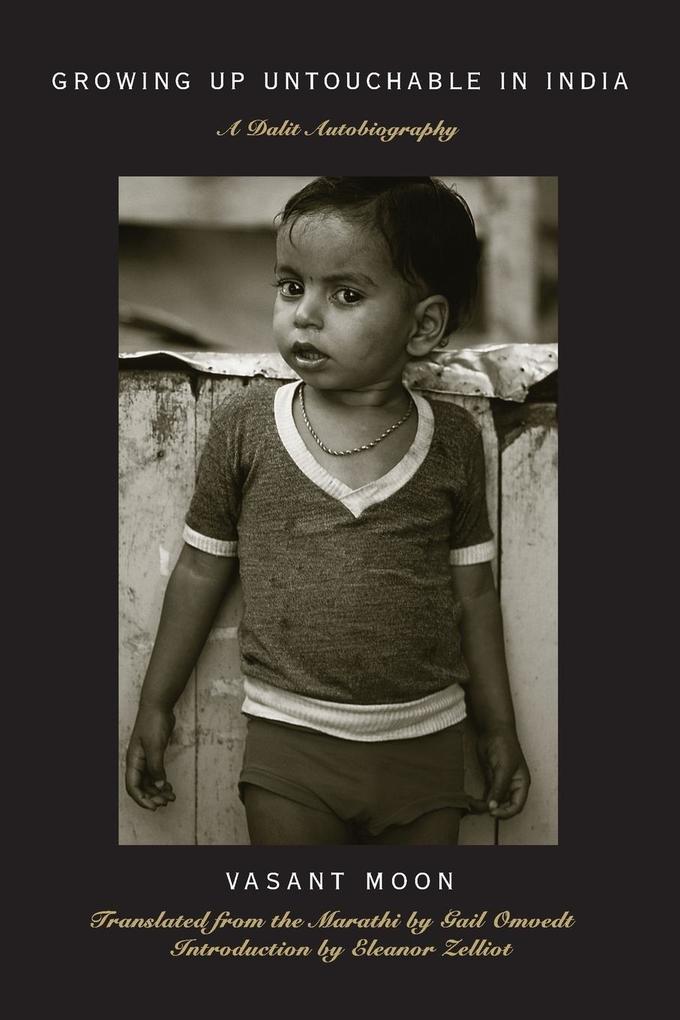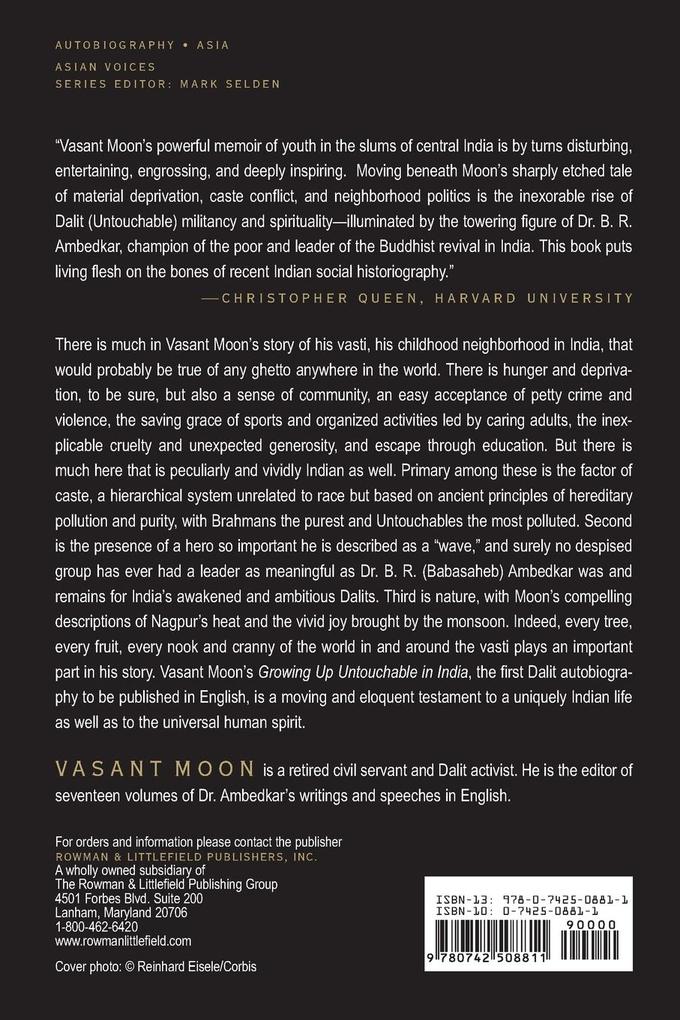
Zustellung: Di, 22.07. - Fr, 25.07.
Versand in 5 Tagen
Versandkostenfrei'In this English translation, Moon's story is usefully framed by apparatus necessary to bring its message to even those taking their first look at South Asian culture. . . The result is an easy to digest short-course on what it means to be a Dalit, in the words of one notable Dalit.'-Journal of Asian Studies
Inhaltsverzeichnis
Chapter 1 The Neighborhood Chapter 2 Fearless Chapter 3 Callousness and Clouds Chapter 4 The Heat and Rain of Childhood Chapter 5 Dev Master's Curse Falls Chapter 6 Religious Hymns Chapter 7 Shooting Star Chapter 8 Chickpeas and Parched Rice Chapter 9 The Unconquered Chapter 10 Parade of Lions and Tigers Chapter 11 Foreshadowing Chapter 12 Holy Victory Chapter 13 Robust and Rollicking Chapter 14 Sports and Study Chapter 15 Pigeons and Politics Chapter 16 Climax Chapter 17 Wrath Chapter 18 Cultural Transformation Chapter 19 An Unspoiled Picture Chapter 20 The Welfare of the World Chapter 21 For What? For Books! Chapter 22 I Begin to Write Chapter 23 The End of Umar Khayam Chapter 24 Rising Moon Chapter 25 The Vows of Religion Chapter 26 Falling Star Chapter 27 Tying the Knot Chapter 28 The Spinning Top Chapter 29 Summing Up
Produktdetails
Erscheinungsdatum
20. Dezember 2000
Sprache
englisch
Seitenanzahl
226
Autor/Autorin
Vasant Moon, Gail Omvedt, Eleanor Zelliot
Verlag/Hersteller
Produktart
kartoniert
Gewicht
335 g
Größe (L/B/H)
229/152/12 mm
ISBN
9780742508811
Entdecken Sie mehr
Pressestimmen
There are few such autobiographies, especially in English, which makes Moon's memories of sleeping on village roads side by side with neighbors, of his mother waking at 4:30 a.m. to work in the mill and of the kindness of certain teachers particularly valuable... Los Angeles Times Omvedt's translation is true to the original Marathi. -- Ravi Shenoy Library Journal This book is a welcome first step towards increasing our understanding of a much-neglected aspect of Indian life. Times Literary Supplement Offer(s) an accessible glimpse of the life and times of one Dalit and the people he grew up with. Journal of Asian Studies His [Moon's] autobiography, written in his native Marathi and translated into English, vividly describes life in an urban Indian slum and gives a glimpse of the internal politics that accompanied the independence movement. Pacific Reader Vasant Moon's powerful memoir of youth in the slums of central India is by turns disturbing, entertaining, engrossing, and deeply inspiring. Moving beneath Moon's sharply etched tale of material deprivation, caste conflict, and neighborhood politics is the inexorable rise of Dalit (Untouchable) militancy and spirituality-illuminated by the towering figure of Dr. B. R. Ambedkar, champion of the poor and leader of the Buddhist revival in India. This book puts living flesh on the bones of recent Indian social historiography. -- Christopher Queen, Harvard University There are few such autobiographies, especially in English, which makes Moon's memories of sleeping on village roads side by side with neighbors, of his mother waking at 4:30 a.m. to work in the mill and of the kindness of certain teachers particularly valuable. Los Angeles Times A powerful personal and collective memory of caste oppression and struggle in India from the 1930s to the 1950s... Both as a historical and as a literary document, there is much to consider in this thought provoking and intensely moving memoir. -- Shalini Ramachandran Race and Class
Bewertungen
0 Bewertungen
Es wurden noch keine Bewertungen abgegeben. Schreiben Sie die erste Bewertung zu "Growing up Untouchable in India" und helfen Sie damit anderen bei der Kaufentscheidung.









